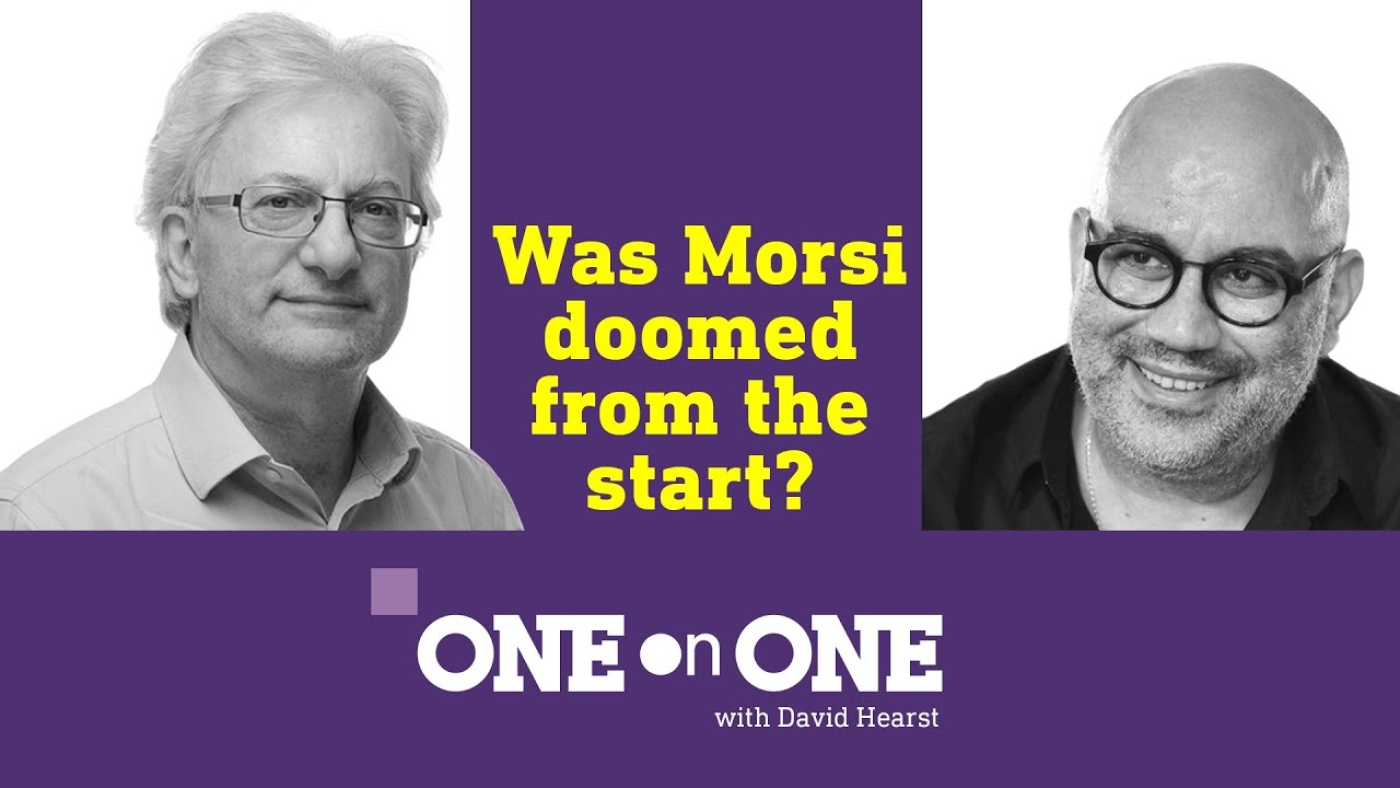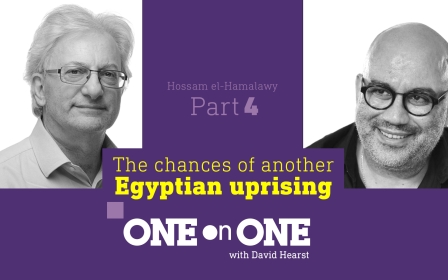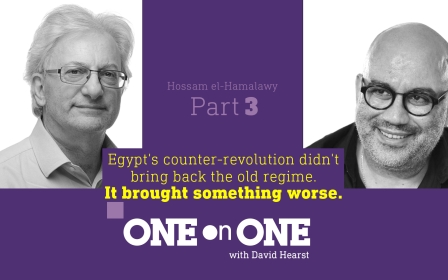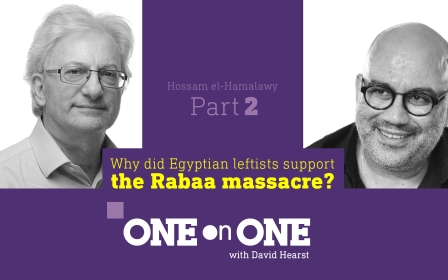One on One: Was Egypt's Morsi doomed to fail from the start? | Episode 1
Published date: 14 August 2023 17:40 UTC
|
Last update: 3 years 3 months ago
After the outbreak of Egypt's 25 January revolution, the country's military moved fast to ensure its own interests even if that meant deposing longtime dictator Hosni Mubarak, says blogger and journalist Hossam el-Hamalawy.
He adds that the uprising took the army’s top brass by surprise but once they were confronted with mass discontent, they employed a carrot and stick approach to ensure they would never have to relinquish power.
While some officers were willing to work with Mohamed Morsi, the country's first democratically elected president, others, including a faction led by Abdel Fattah el-Sisi were determined to extinguish any hint of revolutionary progress.
Morsi sought to cut deals with the military establishment and ring fenced many of their traditional centres of power but his political base was a continuous cause of concern for the army.
Unable to fully win over one side or the other, the increasingly isolated leader became an easy target for an ambitious Sisi, who seized the opportunity overthrow Morsi in the summer of 2013.
He adds that the uprising took the army’s top brass by surprise but once they were confronted with mass discontent, they employed a carrot and stick approach to ensure they would never have to relinquish power.
While some officers were willing to work with Mohamed Morsi, the country's first democratically elected president, others, including a faction led by Abdel Fattah el-Sisi were determined to extinguish any hint of revolutionary progress.
Morsi sought to cut deals with the military establishment and ring fenced many of their traditional centres of power but his political base was a continuous cause of concern for the army.
Unable to fully win over one side or the other, the increasingly isolated leader became an easy target for an ambitious Sisi, who seized the opportunity overthrow Morsi in the summer of 2013.
Middle East Eye delivers independent and unrivalled coverage and analysis of the Middle East, North Africa and beyond. To learn more about republishing this content and the associated fees, please fill out this form. More about MEE can be found here.






